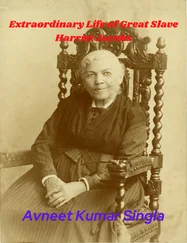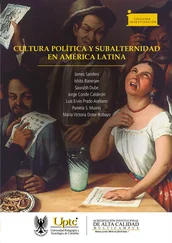For all the talk about fairness and blind auditions, she had no doubt that the best chairs in the Budapest Opera Orchestra went to the Hungarian musicians who happened to look great on stage. The same principle applied to every orchestra in Central Europe. There was no such thing as an ugly or fat concertmaster. That, sadly, was the nature of the music business. The entire system oozed with sexism and moral degradation. Sitting down in the pit of the opera house, she was hidden from the audience anyway. It normally wouldn’t matter if she cut off her hair or dyed it as blue as the typical audience member’s, but this concert was being held in a church over in Buda. There would be no pit, no hole to hide in. She would be up on stage and on live TV. She had to look good. She had to throw up.
Her cell phone beeped, signaling the top of the hour. The concert was at three, which meant she needed to be at Batthyány Square by two. Hour at the salon. That was ten thirty, eleven. Hour to warm up, play some scales. Change. Find a taxi. Two o’clock. Timing wouldn’t be an issue. She will get her cut this time too.
“Whatever. But if you’re serious, which I doubt, I want some ‘before’ shots first.”
Melanie had a digital camera, which she kept hidden in the guestroom closet in a shoebox that also contained several Milka candy bars. She wanted to excavate it and get some snapshots to e-mail home to Mom and Dad, but she knew that Nanette would only give her grief about it. Her roommate never articulated the specific religious doctrine that opposed the operation of a digital camera, but it had something to do with the fact that it didn’t use real light. Or the prints didn’t. Something like that.
After dumping the dregs of her coffee into the sink — it was still Nanette’s turn to do the dishes — Melanie helped set up a portable portrait studio in the living room. The only natural light in the place seeped through a set of double doors that led to a small balcony facing the top floor of the building across the street. By leaning over the rail, they could see a small patch of the river and island to the left, and of course the beer sign at Eve and Adam’s. Even with the windows closed, a cold draft forced its way into the room. The sky, still a good month or two from showing any sign of blue, didn’t provide enough light, so Nanette set up two softboxes containing all but one of the special bulbs she had found in Prague at the end of a long day spent dragging an increasingly grumpy Melanie to musty camera shops all over the city. One of them got broken, quite accidentally, during the train ride home.
Nanette went digging on her hands and knees in the hallway storage closet, cursing up a storm. She emerged with an antique wooden tripod and two white umbrellas. She placed five cameras of different manufacture and expense on the floor, then tested the room at great length with a pocket-sized light meter. She didn’t say anything, but her body language complained bitterly about the endless Budapest winter. Nan came from California originally— Southern California, she always clarified, as if it were a different state — and talked about moving back almost as frequently as Melanie talked about getting her hair cut. Did Melanie give her grief about that? No.
A web developer whom Nanette used to sleep with, and maybe still did, credited the Soviet system for the Hungarians’ reputation as gifted computer programmers and scientists. The government back then, this guy said, distributed very little funding to the scientific community in comparison to what it gave to the military, or even to the arts, yet it demanded results on par with the advances coming out of the United States and Japan. Those tech professionals who remained behind after the short-lived revolution of 1956 and their descendants learned to make do with substandard equipment and facilities and even to create comparable products despite the limitations. When the free markets opened up and new equipment came rolling over the Western border, the Hungarians found themselves able to use it more efficiently than their lazy, capital-fattened counterparts around the globe. That was the theory at least, and it was one Nanette co-opted for her photography. She figured that if she could make do with five months of miserable weather and poor light every year, by the time she got back to San Diego she would understand sunlight in a way somehow different from the local, art school-trained losers. And her approach was already beginning to pay off. The Ernst Galléria, one of the better small museums in the city, had included a series of her platinum prints in an international group show. The sequence, “Cinders I–XIV,” titled in part after Cindy Sherman, included claustrophobic self-portraits of Nanette sitting on the toilet in a tight V-neck, with her nipples erect and panties at her ankles, pouring petrol on herself from a metal can, as if, most people thought, in preparation for setting herself on fire. A wet T-shirt contest done with gasoline. She never told the show’s curator, but once confessed to Melanie that she really did intend to immolate herself that day. To record her own death. She never explained what stopped her, the box of matches already in hand.
Nan had some emotional issues. It got to be a bit much sometimes.
The critical reception of her “Cinders” earned her a job as staff photographer for a local English-language weekly, and her work also appeared with regularity in HVG and other national publications. She closed the curtains again in disgust. “You know what I want?” she asked.
Melissa had heard this a hundred times before. One great photograph.
“I want to take one great photograph. Just one, that’s all. The kind of photo, like that Chinese student in front of the tanks at Tiananmen Square or the colonel shooting a Vietcong prisoner in the head. The kind of photograph that can take the symbolic — you know, something universal — and make it specific enough to tell a story about one particular moment in history. Make it iconic. Close your eyes.”
The words didn’t register quickly enough: Melanie was staring into one of the light boxes, humming along with the opera in her head and growing steadily more nervous, when Nanette switched it on. Melanie yelped.
“Oh, my bad. You O.K.?” Nan asked.
“No, I’m good,” Melanie said.
Blindness took over, then panic, then the room emerged from a thick red gauze. Her headache swelled into allegro con brio and she considered going into the water closet — where she swore she could still smell gasoline — and make herself throw up just to be done with the hangover. Even as her eyes cleared, the white after-image of the light box followed her view for several more minutes and projected itself onto everything she looked at, lending Nanette a ghostly appearance. For years afterwards, when Melanie would think of Nanette, she still pictured that glow around her.
Nan lifted a spinning saloon pianist’s stool and sat Melanie in the center of the room.
Even with her trained and perfect string-section posture, Mel’s hair fell past the wooden seat. Nan squeezed a few Polaroids first, which to Melanie weren’t any better than digital pictures, and let them collect in the camera’s mouth before they drooled onto the throw rug and formed puddles of changing color. Finishing the roll, Nan examined her compositions for a moment and, finding one or two that satisfied her, changed to the eight-by-ten. “I’ll need all my color later,” she said. “I hope black-and-white’s O.K.”
The bleak winter left bright windburns on Melanie’s complexion, which was soft and milky otherwise, except of course for the permanent bruise her violin left under her jawbone. Standing over her shoulder, Nan said something about how the contrast between her cheeks and blonde hair would come out well with a polarizer, or maybe a yellow filter. She used the tripod for the first couple, taking the traditional hands-folded portraits, Mel’s hair hanging over one shoulder. Then she shot from every possible angle: she snapped a photo, spun the stool a few degrees, snapped another, until Melanie traveled a full, woozy circle. She envisioned the freakish, pseudo-cubist collage of her own head that would result when Nanette assembled all the images, if she ever got around to it. The project required an entire roll, one Nan would need to develop carefully in the darkroom if she wanted every shot to match up right. Her sweaty, greasy-fingered editor at the newspaper would pay for the film and paper and developing fluids whether he knew it or not.
Читать дальше












